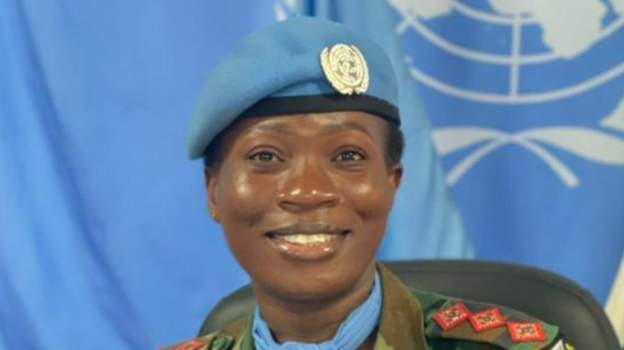A Ghanaian peacekeeper serving in the disputed Sudan-South Sudan border region of Abyei has won a UN award for championing the rights of women.
Captain Cecilia Erzuah, 32, will receive the 2022 UN Military Gender Advocate of the Year award from UN Secretary-General Antonio Guterres on Thursday.
The BBC quoted Mr. Guterres as saying on every front, Captain Erzuah’s work has set the standard for ensuring that the needs and concerns of women are reflected across our peacekeeping operations.
Captain Erzuah has served in Abyei since March 2022 as the commander of the Ghana engagement platoon
Ghana is currently the largest contributor of women peacekeepers in the UN with 375 now deployed.

